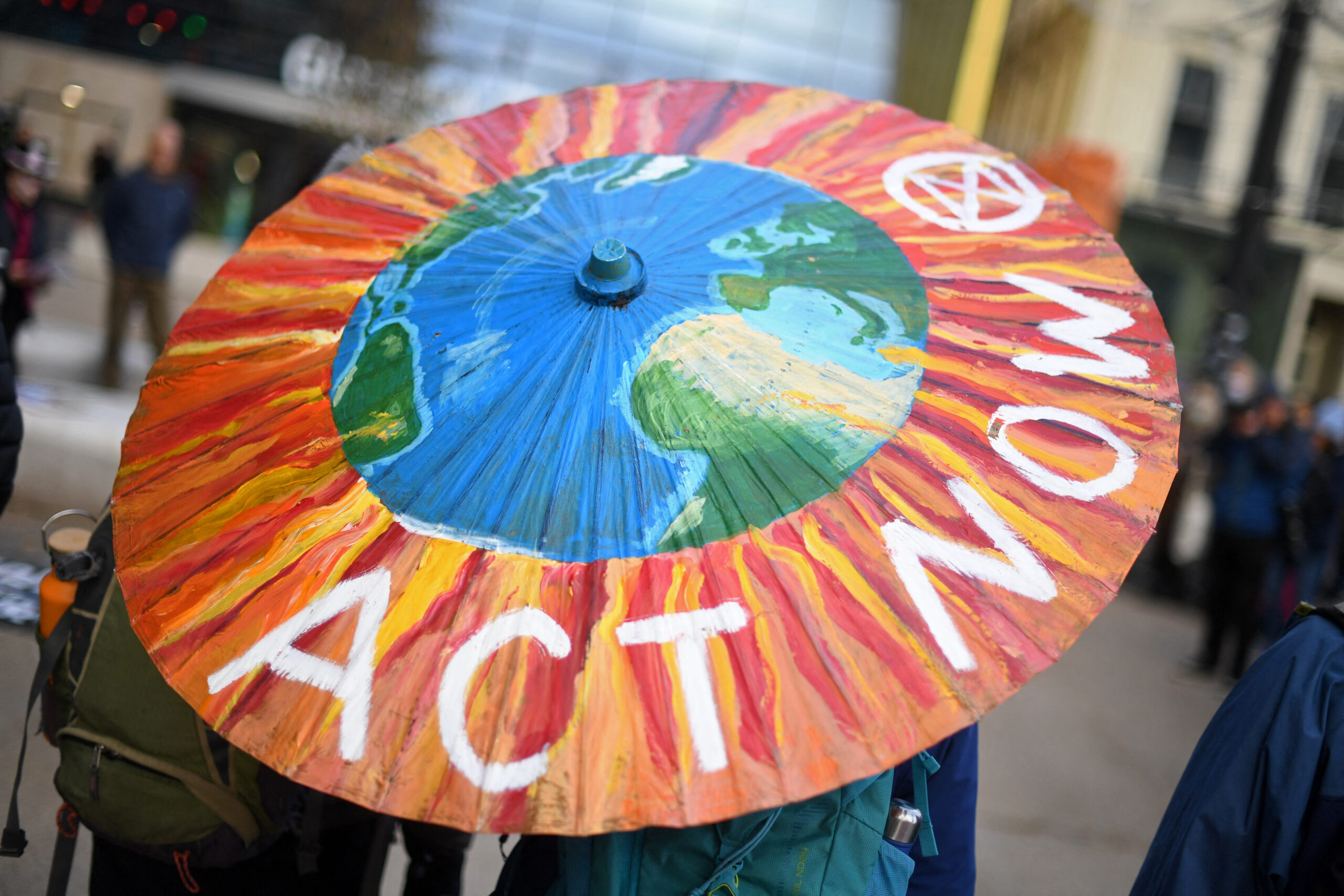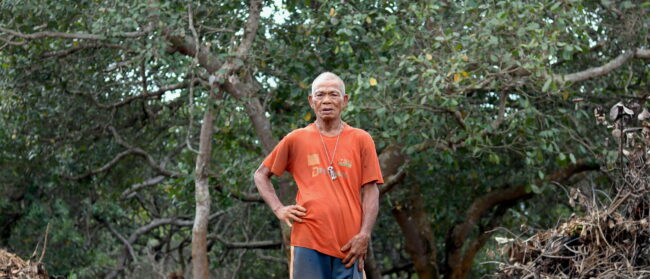Greta Thunberg’s uncompromising environmental activism has helped drive the urgency of the climate crisis into the recent public conscience. Perhaps not since Rachel Carson’s seminal 1962 book, “Silent Spring,” has one person so quickly and effectively raised the profile of environmentalism, with Thunberg’s stark warnings about the dangers of fossil fuel abuse powered by the unquenchable energy of online media.
Thunberg used her most recent, camera-ready appearance at the UN’s COP26 conference in Glasgow, Scotland, to call out participants employing opportunistic greenwashing, the catchy term for token environmental rehabilitation efforts masquerading as sincere eco-concern. Thunberg said on 4 November that the UN meeting was “turning into a greenwash campaign, a P.R. campaign,” for elected officials and executives.
Yet there should be equal concern over the stridency of green shaming, especially in Southeast Asia where the stakes are highest and the voices are often muted. Those living in the region’s developing nations are the living test subjects who will be impacted by the decisions of negotiators in the conference rooms above the street-level placard wavers. As Southeast Asia Globe reported in June: “Cambodian deforestation rates have seen a significant uptick in the past decade, with a March report by Global Initiative Against Transnational Organized Crime finding that it lost 11.7% of forest coverage in protected areas between 2011 and 2018.”
By lashing out at attendees of prominent climate gatherings – for which the 18-year-old Swede has developed a reputation, to the advantage of comedians and right-wing talkers – and focusing ire on the penchant for planning and debate over immediate action, Thunberg and her fellow activists face the unfair, yet realistic possibility of appearing obstinate and histrionic rather than partners for realistic change.

This is where greenwashing rears its ugly, smiling head.
Companies and the corporate-adjacent have learned to sidestep direct confrontations with the environmental movement by seemingly embracing their own responsibility for the crisis through mea culpas and updated mission statements. Facing the prospect of redirecting vast resources toward the climate crisis, they have found greenwashing to be a convenient shield against the harsh accusations of the Scandinavian school pupil turned climate spokesperson and others who voice anger over an establishment that has put profits and expansion over responsibility.
Companies seeking to prove their environmental rehabilitation often trumpet ‘carbon offset’ programmes. These are normally government tax and budget concessions or private investments enabling businesses to compensate for their own emissions through carbon reduction efforts such as clean energy wind farms or reforestation to soak up atmospheric carbon dioxide in locations far removed from their own operations. These projects result in ‘carbon credits’ for the participating nations and corporations.
Likewise, ‘net zero’ is used in the scientific community, but also has become the buzzword frequently bandied about by corporations and federal agencies to denote the goal of balancing carbon output with equal carbon offsets. Net zero math goes something like this: if X is carbon emissions, and Y is hungry tree leaves eating harmful greenhouse gases, then X – Y = NC (No Carbon). It’s easy to compute and gives your public relations a healthy emerald shine.
Greenwashing phrases can be used as misleading covers for entities continuing to pollute while putting on a green public face. Establishing an offset or even reaching net zero doesn’t necessarily mean a company has stopped contributing to the carbon problem, but rather has paid to clean up a different mess far from its own backyard. If offsets providing carbon credits involve green energy or land restoration projects in Southeast Asia, the unintended – or easily ignored – result may be disruption of traditional farming or displacement of indigenous landholders.
Public awareness and participation in environmental harm reduction has exploded in the last decade. Media outlets worldwide have dialed up their focus and commitment to covering the vast array of individual problems covered under the umbrella topic of ‘environment.’ The richest among us have turned some of their philanthropic efforts toward the growing climate threat, although there is reasonable doubt about whether that generosity is meant only to engender goodwill and deepen wealth reservoirs.
Activists are not fooled, and Thunberg has used COP26 appearances as a bullhorn to call out greenwashing. She was pointed in her comments from Glasgow: “The people in power can continue to live in their bubble filled with their fantasies, like eternal growth on a finite planet and technological solutions that will suddenly appear seemingly out of nowhere and will erase all of these crises just like that.”
Yet Thunberg also provided a quip that some found striking: “It is not a secret that COP26 is a failure.” In an online ecosystem engendering a dangerously short attention span among those who only scan headlines or photo captions, the story toppers spawned by Thunberg’s quote offered an incomplete takeaway. The BBC, for example, published the headline: “Greta Thunberg tells protest that COP26 has been a ‘failure.’”
A reader would need to scan to the middle of the page to find the crux of her quote, which was to call for less talk and more robust action in response to a natural emergency: “It should be obvious that we cannot solve a crisis with the same methods that got us into it in the first place.”
Thunberg continued with a pointed indictment of the “people in power,” moving into human rights issues that are inextricably meshed with modern environmentalism. “They know exactly what priceless values they are sacrificing to maintain business as usual,” she said. “The leaders are not doing nothing. They are actively creating loopholes and shaping frameworks to benefit themselves and to continue profiting from this destructive system. This is an active choice by the leaders to continue to let the exploitation of people and nature and the destruction of present and future living conditions to take place.”
Thunberg’s reasonable arguments can be drowned out by her sharp accusations and impatience over an absence of “drastic climate action,” which is often echoed by young activists. A 22-year-old COP26 attendee from Barbados told the Associated Press she found herself in a negotiating session mentally recounting Thunberg’s recent summary of climate talks: “blah blah blah.”
Among the public, this opens the door for youthful energy to be characterised as a lack of serious consideration, while turning off older adults who are already in no mood to be lectured by fresh faces unwilling to play by traditional rules. Again, greenwashing is ready to fill the cracks in the attention of those who are not fully engaged or more likely to respect voices backed by money and establishment power.
Greenwashing through press releases and commercials about carbon offsetting lightens the public pressure and hampers activists, which may cause real danger for those living in Southeast Asian nations whose lands and lives could depend on the outcome of COP26 and similar conferences that have historically underrepresented the region.
While the UN’s list of international climate gatherings begins prominently in Asia with the landmark 1997 Kyoto Protocol, the following climate summits leading up to this year’s COP26 have been held at Asian locations in only eight of the subsequent 22 years; the UN held a virtual climate conference in 2020. The Asian underrepresentation is further sharpened by the limited spread of the meeting locations between 2002 and 2018: one gathering each in Bali, New Delhi and Tianjin and five conferences in Bangkok.
Southeast Asia Globe’s June article highlighted the harassment of environment and wildlife campaigners in Cambodia, with prominent activists driven out of the country and some NGOs forced to participate in what could be perceived as regime-friendly greenwashing to continue operating inside the Kingdom.
“International conservation NGOs in Cambodia are all dependent upon their relationship to the government,” said Sarah Milne, a senior lecturer at Australian National University’s Crawford School of Public Policy. “So if these NGOs are too critical or radical, then they risk being shut out. Is it better to be government-compliant, and keep a seat at the table? I’m not sure. Ethical dilemmas abound.”
Milne highlighted some of those quandaries for the Globe earlier this year, while Rachna Thim profiled environmental campaigners in Cambodia, the Philippines, Thailand and Vietnam who embody the energised activism championed by Thunberg.
Southeast Asian nations could still become environmental success stories. The Globe reported in December 2019 that Cambodia’s reforestation efforts included a goal of 60% tree coverage by 2040, while Future Forum contributor Sam Art Chan indirectly predicted the Kingdom could serve as a positive counterweight to greenwashing as a regional influencer promoting biodiversity and natural resource management. “I think in 2040, Cambodia could be a gold standard,” he said.
Yet greenwashing by the business community and compliant, cash-strapped governments still threatens to undermine the public will for wide-ranging and expensive climate initiatives. Undoubtedly some companies have seen the flashing warning light and genuinely hope to reverse course now that the Earth’s toes are poking over the cliff edge of the abyss, which was highlighted by a recent alarming report from the Intergovernmental Panel on Climate Change detailing the irreversible calamity promised by continued global warming.
But many corporate proclamations of reform sound more like jailhouse repentance for the benefit of consumers sitting on an economic parole board. Oil companies announcing shifts to green energy while continuing to drill for treasured fossil fuels lead the charge in the greenwashing Thunberg and her compatriots perceive at COP26 and similar events.
Whether they came to environmentalism as acolytes of Rachel Carson’s literary exposition of chemical company misinformation or by joining Thunberg’s 13.5 million Instagram followers, those intent on countering environmental abuse face the challenge of raising their voices above businesses and governments intent on bathing themselves in green. Meanwhile, Southeast Asia will continue to be a vulnerable proving ground for the messages issued from all sides.
Brian P. D. Hannon is an editor at Southeast Asia Globe.


